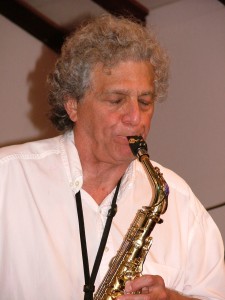
Joseph DiStefano III
(Professor Joe)
Alumni
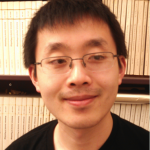
Rukan Shao
rukan.shao[AT]gmail.com
Rukan graduated with an MS in Computer Science in 2015. He received the BS in Engineering Science at Penn State U. In the Biocybernetics lab, he worked on extension of the math model of human thyroid hormone dynamics underlying THYROSIM to fit extreme hyperthyroid and thyrotoxic data.
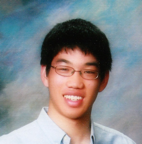
Alan Paul Chen
apcucla[AT]ucla.edu
Alan Chen also is a Computer Science MS graduate (2016), specializing in Computational Systems Biology. He graduated with a BA in Computer Science from Pomona College in 2014. As a student in the Biocybernetics lab, his focus was on improving the accuracy of enzymatic submodels in the thyroid hormone model used in the THYROSIM app.
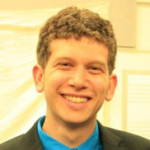
Bill Greenwald
Billgreenwald[AT]g.ucla.edu
Bill Greenwald graduated as a Computational and Systems Biology major in 2015. He did research in our lab on metabolomics and proteomics, and extension of a model of p53 signaling. He is currently at UCSD, working toward the PhD in Bioinformatics and Systems Biology.
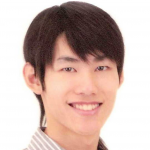
Simon Han, MS 2013
simon.x.han[at]ucla.edu
Simon received his MS degree in Biomedical Engineering in 2013. His work in the Biocybernetics Lab was building THYROSIM, our web-based application for human thyroid hormone system feedback regulation. He is currently working towards his PhD on medical decision making in cancer screening.
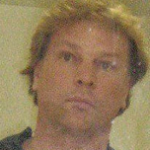
Nik Brown, PhD 2013
Nik graduated from UCLA with MS and PhD degrees in Computer Science. His graduate work in the Biocybernetics Lab focused on analytics for the social web. He is currently a lecturer at Northeastern University and a member of the Playable Innovative Technologies Lab (PLAIT) (see http://www.northeastern.edu/games/). He teaches Game Design and Computer Science at Northeastern in the College of Computer and Information Sciences (http://www.ccs.neu.edu/) and the College of Arts, Media, and Design. (http://www.northeastern.edu/camd/ )
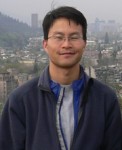
Pep Charusanti, PhD 2006
pep0608[AT]gmail.com
Pep graduated from UCLA and the Biocybernetics lab in 2006 having written a dissertation on mathematical modeling of drug dynamics for the treatment of chronic myeloid leukemia. He began a postdoc position at UC San Diego immediately thereafter, and continued to perform mathematical modeling while also learning experimental microbiology. He became Assistant Project Scientist, combining modeling, microbiology and genomics to drive new insight into the systems biology of bacterial pathogens and the discovery of new antibiotics.
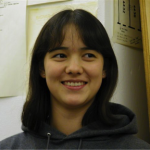
Robyn Javier, PhD 2013
neurobyn[AT]ucla.edu
Robyn was a brilliant UCLA Departmental Scholar, winning several major awards as an undergraduate, and also being a great and “natural” jazz player (primarily trombone). She received the BS in Cybernetics and MS in Biomedical Engineering in 2008, with lab and thesis research on p53 signaling modeling. She earned the PhD degree in Neuroscience from UC San Francisco in 2013 and now works with a publishing house science communication team, taking the latest scientific breakthroughs in cancer research (among other things) and making them understandable to ordinary folks.

Sharon Hori, PhD
seiko24[AT]ucla.edu
Sharon graduated from UCLA with BS degrees in Cybernetics and Applied Mathematics, and MS and PhD degrees in Biomedical Engineering. Her graduate work in the Biocybernetics Lab focused on development of mathematical models for membrane transport processes in health and disease states. She completed her post-doctoral training in the laboratory of Sanjiv Sam Gambhir in the Department of Radiology at Stanford University, and she is now a Research Scientist at the Canary Center at Stanford for Early Cancer Detection. She is integrating mathematical modeling and in vivo biological data to identify strategies to accelerate early cancer detection, based on the use of cancer blood biomarker assays to predict tumor volume. Her modeling work has been featured on the cover of Science Translational Medicine and is currently being utilized to screen potential blood-based biomarkers to expedite earlier cancer detection in patients.
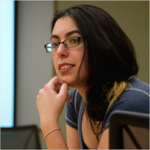
Marisa Eisenberg, PhD
marisae[AT]umich.edu
Marisa Eisenberg received her PhD and MS in Biomedical Engineering (Biocybernetics) from UCLA in 2009 (and BS in Cybernetics too!). She then spent three years as a postdoctoral fellow studying mathematical biology at the Mathematical Biosciences Institute at Ohio State U, before joining the faculty at University of Michigan as an assistant professor in the Departments of Epidemiology and Mathematics. Her research is in mathematical modeling, and is centered around using and developing parameter estimation and identifiability techniques to connect math models and disease data. Her recent research has been primarily in modeling infectious diseases, particularly examining cholera and waterborne disease in Haiti and Africa. She has also developed models of cancer and endocrine disorders. Some current areas of interest include: parameter identifiability and estimation, infectious diseases, cancer modeling, networks and complexity.
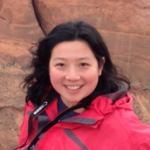
Fiona Chandra, PhD
fiona.a.chandra[AT]gmail.com
Fiona Chandra graduated with a B.S. in Cybernetics in 2005 and received her PhD in Bioengineering from Caltech in 2013. Her dissertation research focused on the effects and tradeoffs of autocatalysis in glycolysis. She is currently a postdoctoral fellow at MIT, studying the effects of autocatalysis in ribosome synthesis. In her spare time, she eats out and travels and writes about it on her food blog: gourmetpigs.blogspot.com
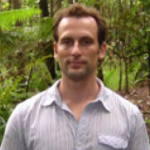
Greg Ferl, PhD
Ferl.gregory[AT]gene.com
Greg received his PhD from the Biocybernetics lab (in Biomedical Engineering) in 2005, and then did a stint as a post-doc in the Henry Huang lab in the Department of Molecular & Medical Pharmacology at UCLA. He is currently a Senior Scientist in the Systems Modeling Group in the Department of Pharmacokinetics & Pharmacodynamics at Genentech, South San Francisco. Greg enjoys the outdoors — hiking, swimming, traveling — and reading classic science fiction and horror novels.
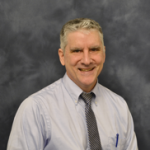
Brian Gurbaxani, PhD
buw8[AT]cdc.gov
The Biocybernetics lab and its students benefited greatly from Brian’s involvement with the lab, from about 2005-2007, when he received the PhD in Biochemistry. Since then, he’s been working as a Health Scientist at the Centers for Disease Control and Prevention (CDC). One of his functions at the CDC is as chief technical liaison between the CDC and Georgia Tech, fostering projects that further the CDC’s public health goals, and encouraging the scientific and engineering development of both organizations. He helps train engineering students in public health work – a new workforce for the future of public health. He’s an adjunct assistant professor of electrical and computer engineering at Georgia Tech, overseeing student projects and supervising graduate students doing thesis research at the CDC. He has also served as a computational biologist and statistician in the chronic viral disease branch (CVDB), National Center for Emerging and Zoonotic Infectious Diseases (NCEZID) at the CDC.
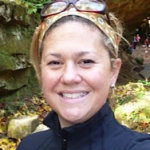
Jenna Rickus, PhD
rickus[AT]purdue.edu
Jenna finished her Ph.D. at UCLA in Neuroscience and Neuroengineering in 2003. She is now Professor of Agricultural and Biological Engineering and Biomedical Engineering at Purdue University. Jenna’s lab is dedicated to creatively engineering bio-inspired materials that can communicate with living cells, tissues and organisms. The materials she develops are integrated into biosensors, implantable devices, and tissue engineered constructs. Applications include research tools and therapeutics for neuroscience, brain cancer, type 1 diabetes, space biology, and the brain computer interface. Her time with Joe and the Biocybernetics group still serves her well as she mentors the Purdue international Genetically Engineered Machine (iGEM) team and teaches courses on cell and molecular design principles as well as the Purdue Honors Course, ‘Synthetic Life’. You can visit her lab at http://rickuslab.weebly.com
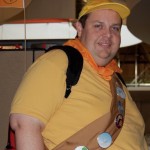
Charles Harless
charles[AT]harless.net
Charles left UCLA at the end of 2005 to explore and pursue opportunities outside of academia/research. After working as a Programmer Analyst in the Division of General Internal Medicine in the UCLA David Geffen School of Medicine, he was offered a chance he could not pass up. He has left academics and even healthcare and went to work for the Walt Disney Company. He spent 9 years working for the Mouse in a variety of areas within the company including Walt Disney Parks & Resorts Online and the Walt Disney Studios. The project he is most proud of while there is Disney Movies Anywhere. He left Disney in 2015 to reinvent himself in yet another industry. He is now a Principal Software Engineer for the Sage Group which provides software for small to medium size businesses. He tries to return to UCLA when possible and is always interested in hearing from fellow Biocybers.
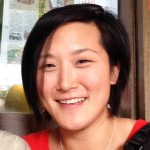
Jane Landolin, PhD
landolin[AT]gmail.com
Jane graduated from UCLA in 2003 as a Departmental Scholar, with a BS in Cybernetics – Bioinformatics concentration and an MS in Biomedical Engineering. This experience nurtured her interest in feedback and control systems, and led her to pursue a PhD in Biomedical Engineering at Boston University to identify genomic features and model the regulatory rules that govern gene expression. There, she discovered that the transcription factor GABP can induce the expression of two genes bidirectionally, and authored many papers in functional genomics as part of the ENCODE project. She returned to the west coast to complete a postdoc at the Life Science Division in Lawrence Berkeley National Laboratory, and annotated the official gene set used by the fruit fly community as part of the modENCODE project. Jane observed that much of genomic research is enabled by new technologies and decided to join Pacific Biosciences, to make long-read DNA sequencing available to researchers everywhere. She is committed to open-access to data and has published and spoken on the topic. When Jane is not working and dreaming about genomics, she can be found rock climbing or watching obscure independent movies.
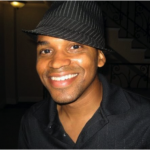
Solomon Russell
solomonrussell[AT]yahoo.com
Solomon graduated from the University of Maryland, Baltimore County with Bachelors degrees in Computer Science and Biochemistry. Later he received his Masters in Computer Science from UCLA working on W3MAMCAT as a thesis project in the BioCybernetics lab. He worked for a couple of years in the defense industry before finding his passion for teaching. He taught at USC MaST High School in South Los Angeles before being hired by UCLA’s Exploring Computer Science (ECS) program as an instructional coach. In the Fall of 2015 he’ll be starting his appointment as a full-time Computer Science faculty member at El Camino College. Having grown up in inner city Washington DC he has a real appreciation for the not fully tapped potential of underrepresented minorities and women in engineering. Solomon is also a rabid Georgetown basketball and Washington Redskins fan and always loves a good political debate. When not in the classroom you may find him teaching weekly salsa dance classes in West Los Angeles.
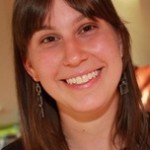
Rotem Ben-Shachar
rbenshachar[at]gmail.com
Rotem received her BS in Computational & Systems Biology in 2010. Her undergraduate thesis research in the Biocybernetics lab was on modeling pediatric thyroid cancer treatment protocols. She recently completed her PhD in Computational Biology & Bioinformatics at Duke University, working in the lab of Dr. Katia Koelle. Rotem’s dissertation work focused on mathematical modeling of dengue virus infections. She characterized the within-host dengue mechanisms driving severe disease, and assessed how control measures and the potential evolution of novel dengue genotypes may impact dengue disease patterns over time. Outside the lab Rotem likes to dance, hike, and write – particularly about women in science.
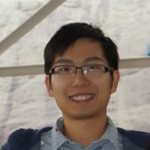
Johnny Chung Ho
johnny5550822[at]ucla.edu
King Chung Ho (Johnny) obtained his MS degree in 2013 from the Biocybernetics Lab. He worked on developing a model to optimize treatments for newborns with congenital hypothyroidism. He is currently working on his PhD and his research focus is to apply deep learning techniques to mine meaningful features from medical images (PWIs, DWIs, etc), which will be used for classification and treatment optimization in stroke patients.
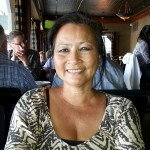
Thuvan Nguyen
thuvannguyen1962[at]yahoo.com
Thuvan Nguyen started out as Professor Joe’s Assistant in the Biocybernetics Laboratory after receiving her BS degree in Computer Science & Linguistics at UCLA in early 80’s. Thus began an unforgettable life journey in academia and science. While working full time, intense curiosity about the world of science and personal pride motivated Thuvan to pursue her MS/PhD degree in Physiological Sciences, specializing in biomodeling of thyroid hormone metabolism in mammals. Despite the many challenges, it was a memorable life achievement. Under Joe’s guidance in the 90’s, Thuvan was successful in developing methodologies and implementing experiment designs to measure whole body thyroid hormone absorption and distribution in rat organs, using compartmental analysis methods, all developed in the Biocybernetics Laboratory. Thuvan retired from UCLA in 2013 as Chief Financial Officer in the Urology Department, School of Medicine.
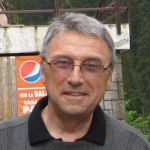
John Fagarasan, PhD 1986
jtfagarasan[at]yahoo.com
John received his BS degree from Bucharest University, and his PhD from UCLA, both in Mathematics. His graduate research work was supported by a Hughes Fellowship, and focused on analysis of the visibility of real, complex and repeated eigenvalues in compartmental models. The results of his analysis were captured in several research articles he co-authored with Joe and published in Mathematical Biosciences. Following his graduation from UCLA John pursued a career in aerospace engineering that took him from Hughes Ground Systems in Fullerton, to Litton Data Systems in Agoura Hills, and finally to Raytheon Space and Airborne Systems in El Segundo. He worked on the design, development and analysis of detection and tracking algorithms for airborne and shipboard radars, multisensory fusion algorithms, Command and Control Systems, and GPS-based navigation and landing systems. He is currently enjoying his retirement by compiling digital music collections spanning decades, traveling to Europe and playing bridge.
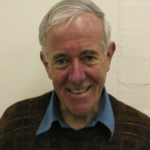
Professor Keith Godfrey
Keith Godfrey is an Emeritus Professor in the Systems Modelling and Simulation Research Group in the School of Engineering at the University of Warwick. He received the Doctor of Science degree from the University of Warwick in 1990 for publications with the collective title “Applications of Modelling, Identification and Parameter Estimation in Engineering and Biomedicine”. He is author, or co-author, of more than 200 papers and is a member of the IFAC Technical Committees on Biomedical Engineering and Control, and on Modelling, Identification and Signal Processing. He was awarded the Honeywell International Medal (2000/2001) of the Institute of Measurement and Control for distinguished contributions to control engineering.
Long association (over 40 years) with Joe DiStefano on aspects of mathematical modelling, in particular structural identifiability of biomedical systems, and structural (in)distinguishability between different compartmental models. Also spent a summer collaborating in the Biocybernetics Lab sometime in the 1980s! Together they produced our new model indistinguishability app DISTING.
See the Photo Gallery.